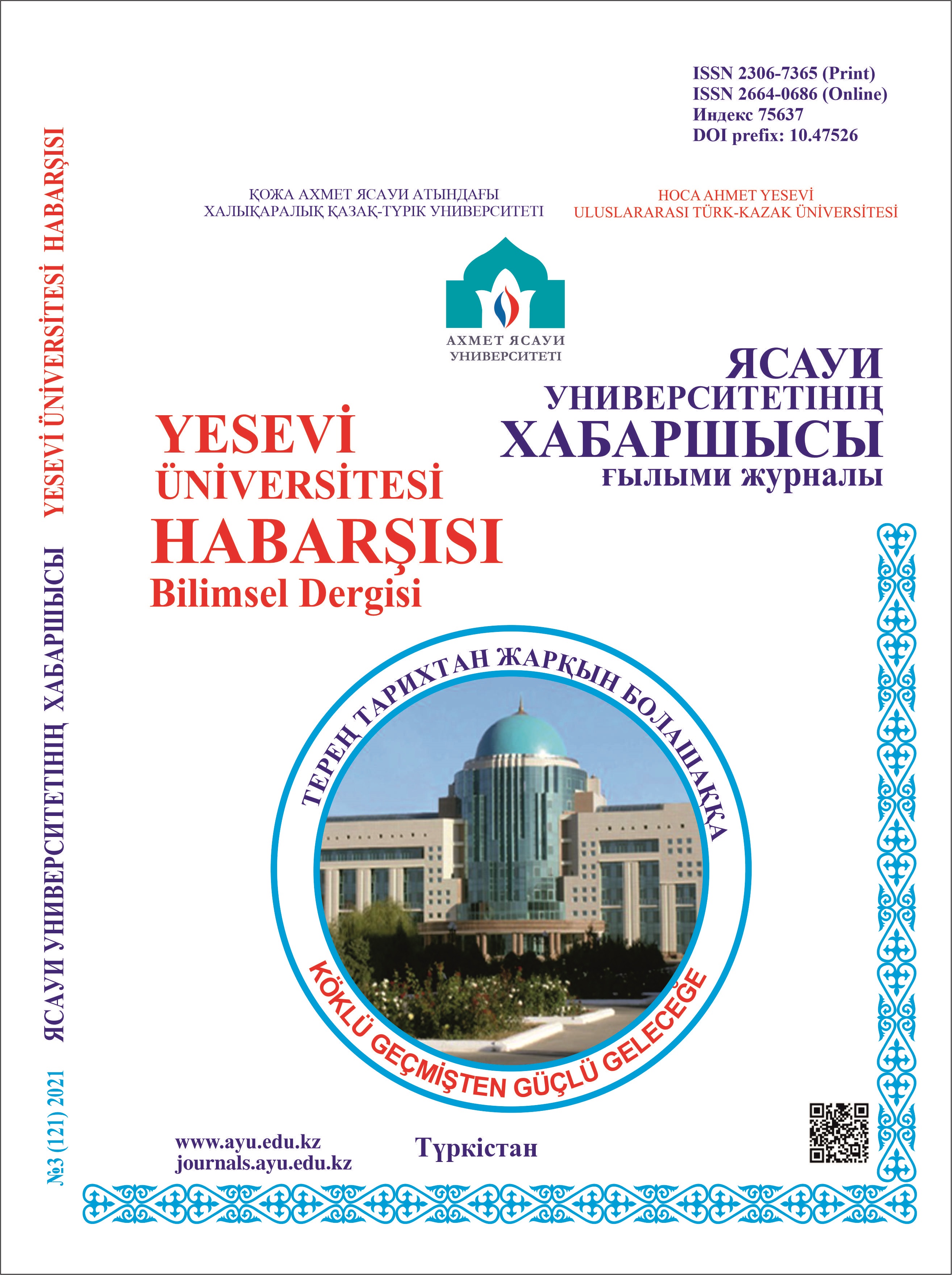Development of Innovative Skills of Primary Class Students Through Robotics
266 149
Keywords:
robotics, elementary school, curriculum, robotics in education, innovative technology, digital resource, innovative skill.Abstract
The purpose of writing the article is to study and identify the impact of robotics education in elementary school on the development of innovative skills of students (skills of communication, interaction, and independent decision–making of students). Given the need for a modern workforce in the 21st century, the article found out how practical robotics activities contribute to creativity, critical thinking, problem-solving, and teamwork in primary school students. Research on the impact of robotics teaching on primary school students is analyzed and shown to contribute to the enrichment of the educational field and the integration of innovative pedagogical approaches to better prepare students for future tasks.
The main results of the study demonstrate a significant improvement in the innovation skills of junior primary school students due to robotics training. Hands-on robotics experiences were accompanied by increased creativity, critical thinking, problem-solving, and collaboration skills. Integrating robotics into the classroom successfully combined theoretical knowledge with practical application, reinforcing core STEM concepts. The impact of this approach extends beyond the educational context, allowing robotics education to be seen as a dynamic platform for developing interest and innovation. Developing children's problem-solving skills through concrete tasks and collaborative learning experiences helps prepare them for a technological future. By understanding the multifaceted benefits of robotics education for developing innovative skills, educators can play an important role in preparing students for success in the ever-changing world of the 21st century. This study makes a significant contribution to the debate on innovative pedagogical approaches by emphasizing the need for holistic education that goes beyond traditional educational structures.
References
Казбекова Г.Н., Исмагулова Ж.С. Инновациялық STEM-білім беру тәсілін қалыптастыру // Ясауи университетінің хабаршысы. – 2022. – №3 (125). – Б. 200–210. https://doi.org/10.47526/2022-3/2664-0686.17
Нишанбаева С.Х., Нишанбаева С.З., Алимбекова Л. «STEM» білім беруді бастауыш сыныптарда пайдаланудың тиімділігі // Абай ат. ҚазҰПУ хабаршысы, «Педагогикалық ғылымдар» сериясы. – 2021. – №3 (71). – Б. 190–200. https://doi.org/10.51889/2021-3.1728-5496.19
Халықова К.З. Болашақ информатика мұғалімдерін кәсіби даярлау процесіне робототехника негіздерін оқытуды енгізу қажеттілігі туралы // Абай ат. ҚазҰПУ хабаршысы, «Физика-математика ғылымдары» сериясы. – 2017. – №3 (59). – Б. 279–283.
Falkner K., Vivian R., Falkner N. The Australian digital technologies curriculum: challenge and opportunity // Proceedings of the Sixteenth Australasian Computing Education Conference. – 2014. – Vol. 148. – P. 3–12.
Choi J., An S., Lee Y. Computing education in Korea—current issues and endeavors // ACM Transactions on Computing Education (TOCE). – 2015. – Т. 15. – №2. – P. 1–22.
Slangen L. Teaching robotics in primary school. – Eindhoven: Eindhoven University of Technology, 2016. – 215 p.
Karahoca D., Karahoca A., Uzunboylub H. Robotics teaching in primary school education by project based learning for supporting science and technology courses // Procedia Computer Science. – 2011. – Т. 3. – С. 1425–1431.
Chalmers C. Robotics and computational thinking in primary school // International Journal of Child-Computer Interaction. – 2018. – Т. 17. – С. 93–100.
Scaradozzi D., Sorbi L., Pedale A. Teaching robotics at the primary school: an innovative approach // Procedia-Social and Behavioral Sciences. – 2015. – Т. 174. – С. 3838–3846.
Blanchard S., Freiman V., Lirrete-Pitre N. Strategies used by elementary schoolchildren solving robotics-based complex tasks: Innovative potential of technology // Procedia-Social and Behavioral Sciences. – 2010. – Т. 2. – №2. – С. 2851–2857.
REFERENCES
Kazbekova G.N., Ismagulova J.S. Innovacialyq STEM-bіlіm beru tasіlіn qalyptastyru [Formation of an innovative STEM-education approach] // Iasaui universitetіnіn habarshysy. – 2022. – №3 (125). – B. 200–210. https://doi.org/10.47526/2022-3/2664-0686.17 [in Kazakh]
Nishanbaeva S.H., Nishanbaeva S.Z., Alimbekova L. «STEM» bіlіm berudі bastauysh synyptarda paidalanudyn tiіmdіlіgі [The effectiveness of the use of “STEM” education in primary grades] // Abai at. QazUPU habarshysy, «Pedagogikalyq gylymdar» seriasy. – 2021. – №3 (71). – B. 190–200. https://doi.org/10.51889/2021-3.1728-5496.1917 [in Kazakh]
Halyqova K.Z. Bolashaq informatika mugalіmderіn kasіbi daiarlau procesіne robototehnika negіzderіn oqytudy engіzu qajettіlіgі turaly [On the need to introduce teaching the basics of robotics into the process of professional training of future computer science teachers] // Abai at. QazUPU habarshysy, «Fizika-matematika gylymdary» seriasy. – 2017. – №3 (59). – B. 279–283. [in Kazakh]
Falkner K., Vivian R., Falkner N. The Australian digital technologies curriculum: challenge and opportunity // Proceedings of the Sixteenth Australasian Computing Education Conference. – 2014. – Vol. 148. – P. 3–12.
Choi J., An S., Lee Y. Computing education in Korea—current issues and endeavors // ACM Transactions on Computing Education (TOCE). – 2015. – Т. 15. – №2. – P. 1–22.
Slangen L. Teaching robotics in primary school. – Eindhoven: Eindhoven University of Technology, 2016. – 215 p.
Karahoca D., Karahoca A., Uzunboylub H. Robotics teaching in primary school education by project based learning for supporting science and technology courses // Procedia Computer Science. – 2011. – Т. 3. – С. 1425–1431.
Chalmers C. Robotics and computational thinking in primary school // International Journal of Child-Computer Interaction. – 2018. – Т. 17. – С. 93–100.
Scaradozzi D., Sorbi L., Pedale A. Teaching robotics at the primary school: an innovative approach // Procedia-Social and Behavioral Sciences. – 2015. – Т. 174. – С. 3838–3846.
Blanchard S., Freiman V., Lirrete-Pitre N. Strategies used by elementary schoolchildren solving robotics-based complex tasks: Innovative potential of technology // Procedia-Social and Behavioral Sciences. – 2010. – Т. 2. – №2. – С. 2851–2857.

